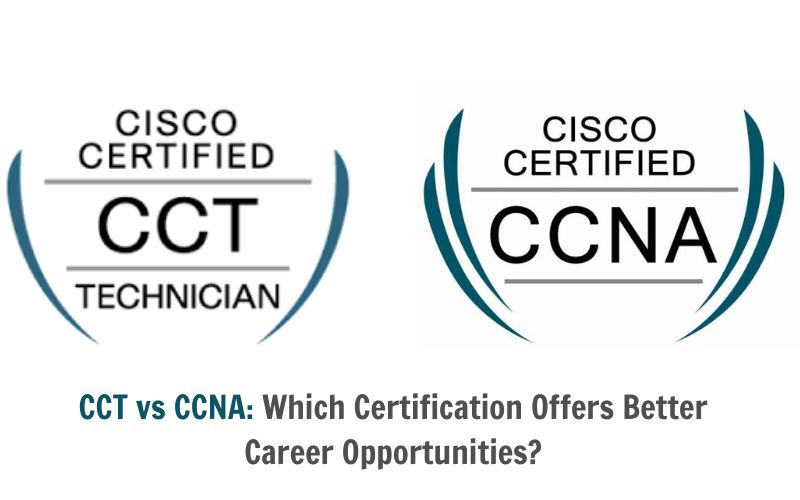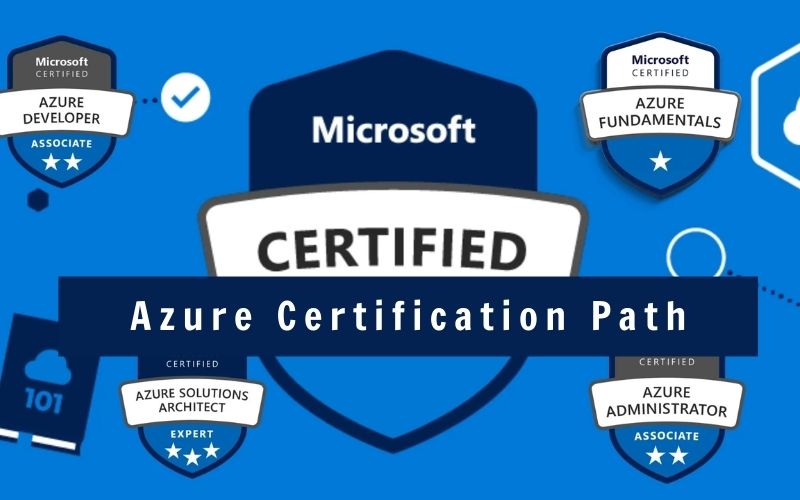Wondering “Is PMP certification worth it?”. If it is worth your time and investment and helps you ace your career? In this article, IT Exams will explore the advantages and disadvantages of obtaining a PMP certification and help you decide if it’s worth the investment.
What Is PMP?

PMPPMP stands for Project Management Professional. It is a globally recognized project management certification. The Project Management Institute (PMI) provides the certification, and passing the test confirms that the individual has the abilities and knowledge needed to successfully lead projects. The PMP certification is highly respected in the business and may significantly boost job chances for people who get it.
How To Obtain PMP Certification?

To obtain the Project Management Professional (PMP) certification, candidates must follow these steps:
1. Meet the PMP certification requirements
You must first ensure that you are eligible to take the PMP test. You’ll need one of the following:
- If you have a four-year degree and 35 hours of project management course training, you must also have at least 36 months of project management experience.
- If you have an associate degree or a high school certificate, you will need 35 hours of project management course instruction and 60 months of experience.
Keep track of your projects and training, including information such as your precise job, duties, and length of projects or training so that you have it on hand when applying. If you hold a CAPM certification, you can skip the training requirement.
The PMP certification lasts three years. During that period, you must devote 60 hours.
2. Apply
Create an account with PMI and begin the application process for the PMP test. This will require disclosing basic biographical information such as your school history, as well as specifics about the projects you’ve worked on.
You’ll pay the exam price and arrange a test once you’ve been accepted.
3. Prepare
This is when you train for the exam, either through coursework or on your own. Several exam prep providers recommend spending 60 to 120 hours studying. This can take several months depending on how frequently you study.
The PMP exam covers various topics related to project management, so candidates should study and prepare extensively for the exam. PMI offers study materials and courses to help candidates prepare for the exam. On this website, we also offer various PMP practice tests to help you familiarize yourself with the test format. Give it a try!
4. Take the PMP exam
The exam can be taken at a testing site near you or online. The exam takes a little under four hours to complete.
5. Maintain your certification
The PMP certification is valid for three years. You’ll need to spend 60 hours during that time frame on professional development activities to maintain it. Otherwise, you can sign up to take the exam again.
What Are The Advantages Of Using PMP?

Of course, PMP certification has so a wide range of benefits for the one who has it. This is where you may no longer wonder “Is PMP worth it?” because it totally is. Let’s take a look!
Increased job opportunities
One of the primary benefits of earning the Project Management Professional (PMP) certification is the enhanced work options it provides. PMP certification is widely recognized and highly regarded by enterprises in a variety of sectors. This certification confirms a project manager’s knowledge and skill in project management, allowing them to stand out in the job market. Employers frequently seek PMP-certified workers for project management jobs both domestically and globally.
Higher salary potential
Another advantage of PMP certification is the potential for a higher salary. According to PMI’s 2020 Salary Survey, the average PMP certification salary for a certified professional is 25% higher than for non-certified professionals. This salary increase is due to the recognition of the PMP certification and the high demand for project management professionals in the job market.
Improved project management skills
Additionally, PMP certification equips project managers with a thorough grasp of project management principles and practices. This certification covers a broad variety of project management issues, including project planning, execution, monitoring and controlling, and project completion. The knowledge obtained via the PMP certification process assists project managers in improving their project management abilities, which can result in improved project outcomes.
Recognition as a qualified project manager
Finally, PMP certification establishes you as a qualified project manager. This certification shows that a project manager has met specific criteria and has the knowledge and abilities required to conduct successful projects. A project manager’s credibility and reputation within the project management industry are also enhanced by PMP certification, which can lead to more possibilities for professional growth and development.
What Are The Disadvantages Of Using PMP?

Cost and time commitment
The expense and time commitment necessary to get the Project Management Professional (PMP) certification is one of the key downsides. The exam price is $555 for non-members of the Project Management Institute (PMI) and $405 for members of the PMI. Furthermore, because the test covers a wide variety of project management topics, studying for it takes a great amount of time and effort. Candidates must additionally complete specific PMP standards, which may necessitate additional time and money.
Limited relevance to certain industries or job roles
Another downside of PMP certification is its narrow application to specific sectors or job categories. While the PMP certification is worldwide recognized, certain businesses may value or demand it less than others. Furthermore, many employment categories may not necessitate a PMP certification since project management obligations are minor or non-existent.
Required Experience and Education
Candidates must fulfill specific experience and academic criteria to be eligible for the PMP certification. This can be detrimental to people who lack the necessary experience or knowledge. It can also limit chances for people just starting out in project management.
Difficulty in maintaining certification
Continuous education and professional growth are required to keep the PMP certification current. To keep their certification, PMP-certified professionals must obtain 60 PDUs every three years. This might be difficult for certain professions since it necessitates constant work and time commitment. Failure to retain the certification might result in the loss of the PMP certificate, which can be detrimental to people who have spent significant time and money getting it.
Is PMP Certification Worth It?

The value of PMP certification is determined by an individual’s circumstances and professional ambitions. When making this selection, however, there are various aspects to consider.
Increased career options, greater compensation potential, enhanced project management abilities, and acknowledgment as a certified project manager are all benefits of having the PMP certification. Many firms need or prefer PMP-certified workers for project management jobs, which can lead to new career prospects. It can also lead to a raise in pay because PMP certification is widely seen as a sign of advanced project management abilities and competence.
Aside from employment rewards, attaining the PMP certification will help you enhance your project management abilities. The PMP test covers a broad variety of project management subjects, and studying for it necessitates a thorough grasp of project management concepts and best practices. This information can be used in real-world projects to improve project results and project management success.
Nevertheless, earning a PMP certification has several drawbacks. There are several disadvantages, including the cost and time required to get it, the fact that it is only applicable to a few industries or job functions, the necessity of experience and education, and the difficulty in maintaining certification.
Finally, a person’s situation and career goals will determine if the PMP certification is valuable. For those who are interested in project management and want to advance their careers in this field, PMP certification may provide a number of advantages. To weigh the advantages and disadvantages, as well as the time, money, and effort needed to get and maintain the certification, is crucial.
5 Alternative Certifications To PMP

Even while the PMP certification is unquestionably popular among project managers, it’s important to remember that there are other credentials that might be equally valuable. Here are five substitute certificates worth thinking about:
First off, in the field of Agile project management, the Certified Scrum Master (CSM) qualification is generally respected. It focuses on the Scrum technique and gives people the knowledge and abilities they need to effectively manage projects in an Agile setting. Second, the UK and Europe make substantial use of PRINCE2 certification. It provides a thorough framework for managing projects, taking into account important elements such as project initiation, planning, execution, monitoring, and closure. Thirdly, aspirant project managers have the entry-level option of earning the Certified Associate in Project Management (CAPM) credential. It disseminates fundamental information about project management, such as important terms, procedures, and subject areas. Fourthly, project managers working in agile contexts might benefit from the Agile Certified Practitioner (ACP) qualification. It includes project management methods and tools as well as Agile ideas and practices. Our post offers insightful comparisons between PMP vs Agile in greater depth. Lastly, Six Sigma certification caters to professionals seeking expertise in process improvement. It provides people with efficient methods and tools for cutting waste and improving project quality.
FAQs

What is the main idea behind PMP?
The fundamental goal of PMP is to give project managers a standardized framework and a list of best practices. The PMBOK, a manual that describes project management concepts and practices, provides the foundation for the PMP certification. Project integration, scope, time, cost, quality, human resources, communication, risk, and procurement are among the themes covered by the PMBOK. Other topics include project initiation, planning, execution, monitoring, and closure.
Is PMP better than CSM?
The specific needs and objectives of the individual decide if PMP is preferable to CSM. Two project management certificates that focus on diverse procedures and methods are the PMP and CSM.
The Project Management Professional (PMP) certification focuses on traditional project management ideas and practices and is based on the PMBOK or Project Management Body of Knowledge. It is widely recognized as the gold standard for project management expertise and includes a wide range of topics, such as project initiation, planning, execution, monitoring, and closing.
The CSM certification, on the other hand, emphasizes Scrum methodology and Agile project management. It imparts the knowledge and abilities necessary for managing projects in an agile environment, such as sprint planning, daily stand-up meetings, and sprint reviews.
The PMP and CSM certifications each offer benefits and drawbacks. People who work in industries where traditional project management is the norm, like construction or engineering, may be better suited for PMP certification. For those who work in software development or other industries where the Agile technique is used, CSM may be more applicable.
Read more >> Best PMP Certification: The Ultimate Guide For Project Management Professionals
Is PMP for beginners?
The PMP certification is intended for seasoned project managers with several years of experience managing projects, not for beginners. Depending on the candidate’s level of education, the minimum need for the PMP certification is three to five years of project management experience.
Even for seasoned project managers, the PMP certification test is thought to be fairly difficult since it covers such a broad variety of topics. Candidates’ understanding of project management best practices and concepts, as well as their capacity to apply this knowledge to practical situations, are assessed in the exam.
How many people fail the PMP?
The PMP certification test is fairly difficult, and its pass rate varies from year to year. In 2020, 62.1% of applicants nationwide passed the PMP exam, according to the PMI company. The variance in passing rates can be attributed to a number of variables, including the test-takers’ degree of expertise, the amount of time they spent studying and preparing, and the difficulty of the particular exam they took. To maintain it in line with the most recent project management best practices, the PMI also often changes the PMP test.
How hard is it to pass the PMP?
The PMP certification test is typically viewed as challenging, necessitating much study time and preparation to pass. Project planning, execution, monitoring and control, and closing are just a few of the topics covered in the exam.
The test asks candidates to demonstrate their understanding of the range of topics addressed as well as their ability to assess and resolve challenging project management problems.
The difficulty of the PMP test may also depend on the candidate’s level of experience. Despite the fact that the PMP certification is intended for experienced project managers, persons with less expertise could have trouble applying the ideas and principles in real-world circumstances.
Final Words
In conclusion, it is critical to carefully weigh the benefits and drawbacks while deciding whether or not to obtain a PMP certification, taking into consideration your particular professional goals and desires. Despite the fact that the PMP certification has many advantages, not everyone should pursue it. No matter which certification you choose—the PMP or another—it is critical to continually engage in professional development and keep abreast of the most recent developments and trends in your industry. You may advance in project management and accomplish your objectives by gaining the relevant knowledge and credentials. We are convinced that after reading the material provided, you already know the answer to the question, Is PMP certification worth it?. We hope that this thorough tutorial has given you insightful information on the value of the PMP certification. You will be able to decide on the professional path that is best for you by carefully weighing the benefits and drawbacks of many possibilities and exploring them.
[Sassy_Social_Share]


